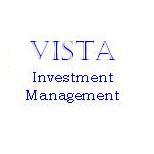 Author: John Frankola, Vista Investment Management
Author: John Frankola, Vista Investment Management
Covestor models: Core Holding, Core Equity
With European economic problems dominating financial news headlines, my recently completed trip to several European cities helped to put some of the issues into perspective.
The major concern in both Europe and the U.S. is that the risk of a recession appears to be increasing. The numbers tell the story – GDP growth on both sides of the Atlantic has stagnated, unemployment remains high, and government budget deficits have not been brought under control.
While the situation appears dire when reading the financial news, the anecdotal observations at times are in contrast. Here are some of my comments.
Currencies: All of the cities I visited (Paris, London, Amsterdam, Cologne) seemed to be more expensive that the U.S. Hotels, food, beer, wine, clothing, and electronics all seemed to be priced considerably higher than in the U.S. To reach purchasing power parity, it would not be surprising to see the Euro fall to closer to $1.00 per euro. In fact, the euro has been declining steadily against the USD in late August and early September.
Retail: Generally stores looked busy, especially high-end retailers – many had lines just to enter the stores. Teen retailer Abercrombie and Fitch had roughly 100 people waiting in line to enter its store on the Champs Elysees in Paris on a Monday afternoon. The two Apple stores I visited in Paris were packed. I spoke with some merchants and they commented that business was good. However, these locations might be supported more by tourists, rather than locals.
Transportation: The flight to Europe was full, while the return flight was about half of capacity. All trains that we took were virtually full, including the Eurostar from London to Paris, which appeared to be sold out. A mid-day British Airways flight from Amsterdam to London was about 80% full. Subways were packed in Paris and London.
Lodging: The hotel industry has become almost the perfect, efficient marketplace due to the growing use of online reservation websites. If there are empty rooms in a city, you can get a great price. But if rooms are tight, you can expect to pay a lot. None of our rooms were booked more than a few days before our stay, so we were dealing with spot market prices. In general, rooms were in tight supply and prices were expensive in most cities. While my expectations were that there might be some bargains since the holiday season was winding down, I was told that most of the strong demand was coming from business travelers back from holiday.
Miscellaneous: Not surprisingly, we did not see many other Americans on our trip. School had started soon before in the U.S. and the summer vacation season was over. In addition, as noted previously, Europe is relatively expensive compared to the U.S. We did see a large numbers of “emerging market” tourists. Many were from Asia, and a surprising large number were from Russia.
Casual observations seem to indicate that Europe’s consumer sector is currently doing just fine, with no conspicuous signs that a recession is underway or around the corner. In addition, a weaker euro should be positive for the economy, as it would make European exports more competitive globally. This would be especially true for Germany, which has a large export component to its economy.
The European debt crisis is almost like an ominous monster that lurks in the shadows. Everyone knows its there, but at least for now, life goes on for the average person.
If European leaders are able to favorably resolve the current debt crisis, it would seem that Europe’s current fragile recovery can be sustained. The implications for investors are significant, since a European recession or financial crisis would likely have a negative impact on the U.S. economy as well. As has been the case for most of the summer, news out of Europe is likely to continue to set the direction for most global markets.


